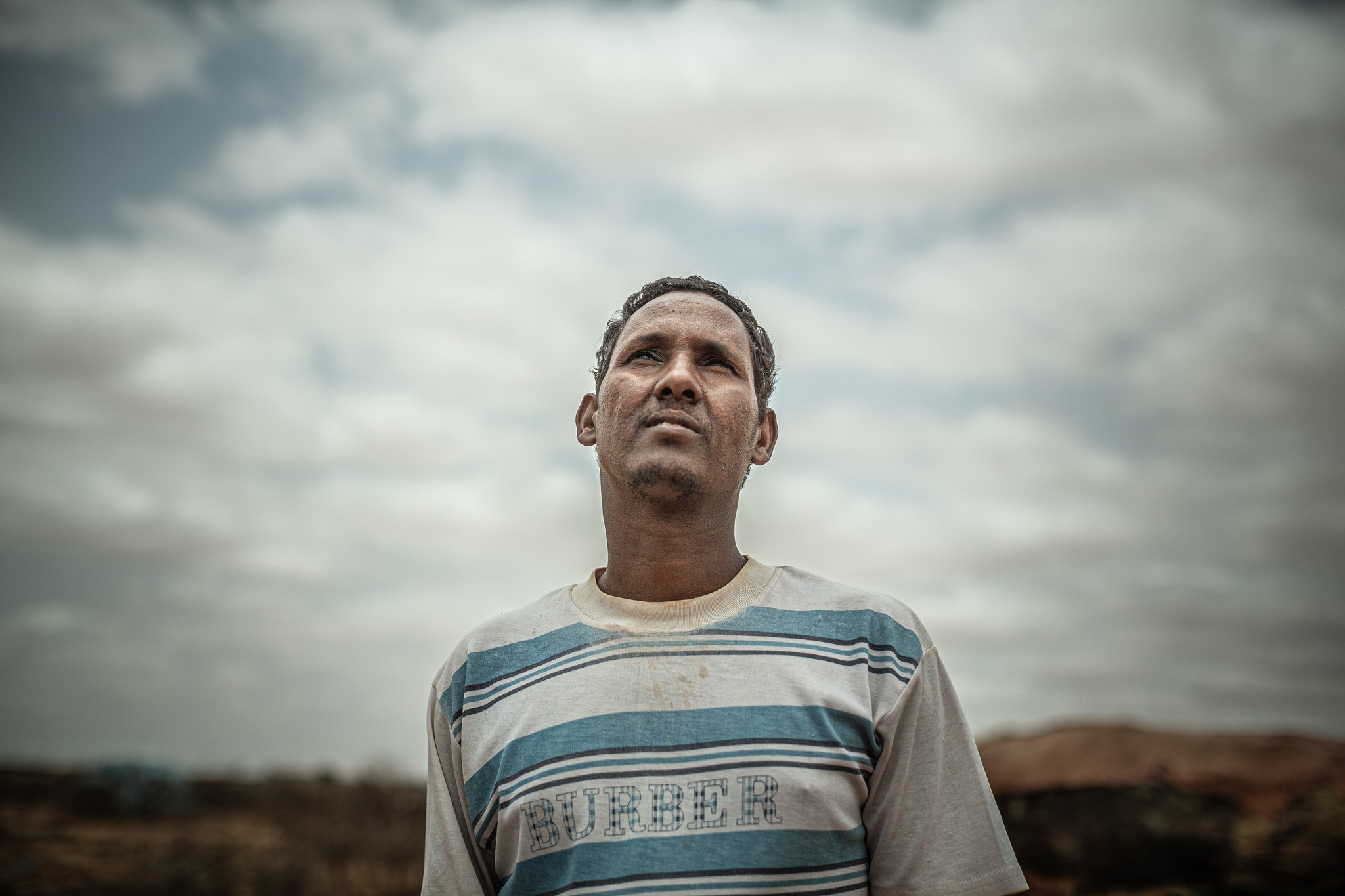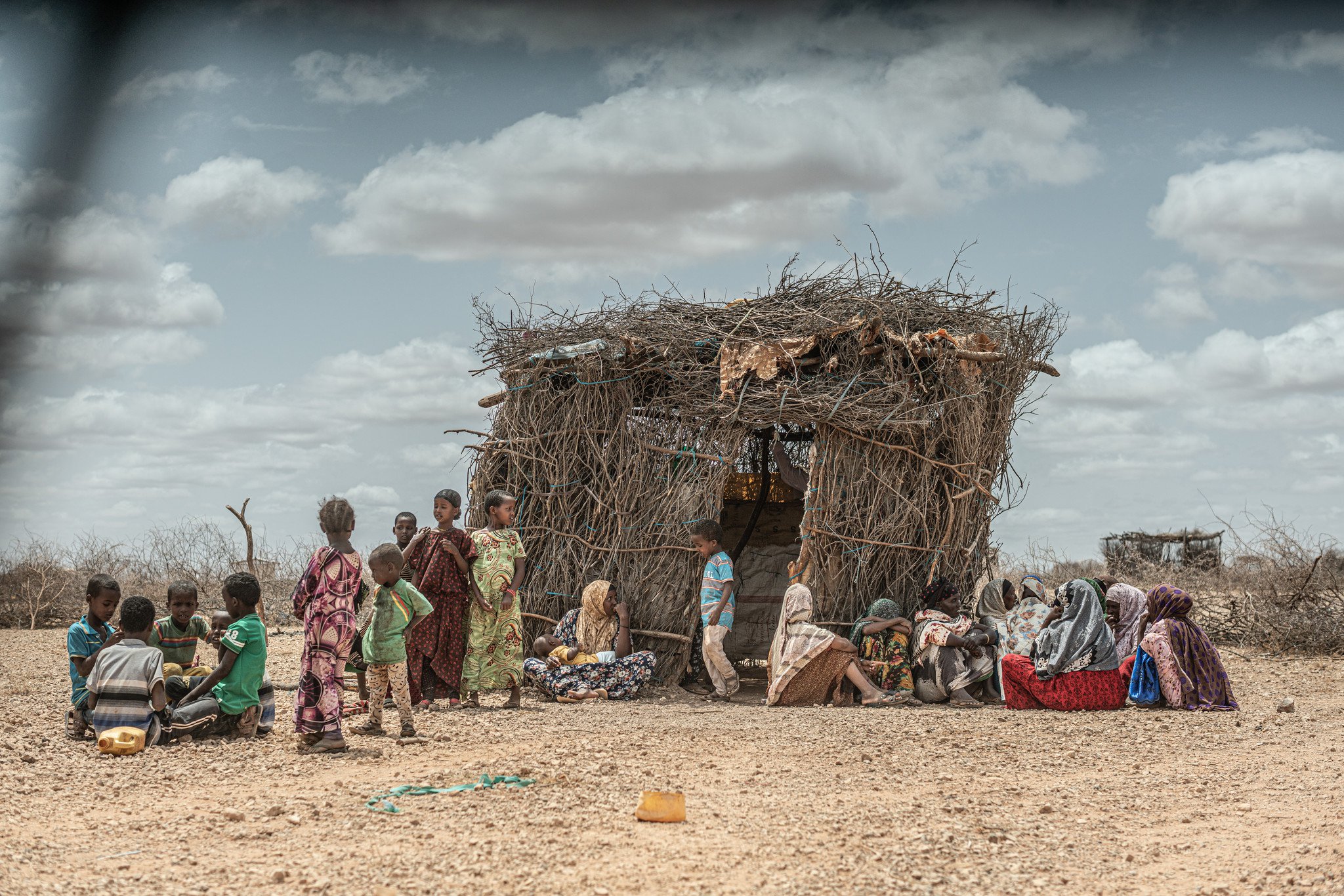For a young family in Ethiopia, surviving a climate shock and a deadly disease leads to the promise of a new livelihood.
Mohammed Dek says a severe drought in 2016 and 2017 turned his life upside down: First, it killed all his livestock. He and his extended family had 150 sheep and about 50 camels, and they moved around parts of Ethiopia’s Somali Region looking for pasture and water. “The rain stopped,” he says, “and the animals lacked feed and pasture.”
For a pastoralist family, losing an entire herd of animals to drought is a cruel form of bankruptcy. Not only do the animals represent their wealth, herding livestock defines who they are culturally. It is as much an existential crisis as an economic one. But for Dek’s family, this was just the beginning of a crisis brought on by climate change that would change their way of making a living— and hopefully lead to a better life.
Deadly disease
Dek says they did not dwell on the loss of their camels and sheep. “The livestock were gone; we had to accept that,” he says, using the Somali word “samar,” which means the acceptance of a loss. He and his wife and three children had other more important problems: “We had to focus on human life.”
When a severe drought hits, drinking water supplies become scarce and many families are forced to drink unclean water. This can lead to an outbreak of water-borne diseases and severe malnutrition as people with stomach problems are unable to benefit from what little food is available. In Dek’s village, a small place called Dalad, people came down with severe diarrhea (likely cholera) and became so dehydrated they died.
By the end of 2016, both of Dek’s parents and his uncle had passed away, and the government was advising Dek and his surviving family and others in Dalad to move 13 kilometers to the district center of Gunogado. Nearly three years later, there are still an additional 645 internally displaced families (about 3,900 people) living here, many in makeshift shelters.

Gunogado is in a remote part of the Somali region, accessible only by crossing a vast plain of what should be grassland but in dry times is a dusty expanse dotted by thorn bushes. Approaching the town, an occasional herd of cattle or goats trudge across the arid landscape, kicking up clouds of dust. Nearby, eight gerenuk (long-necked gazelle) seek shade in a group of spindly trees.
“A lot of people come here because we have had some rainfall, so they are coming with their livestock,” says one government official based in the community. But, he continues, in reality there is a shortage of water and pasture, and now the community is becoming crowded. “There are food shortages, and market prices are going up,” he says.
Seeking safety
Dek came to Gunagado at the end of 2016. “We had so many problems. When I came here I felt safe, because we could get some help. There were others like us, and we would be protected by the government.”
“When we first got here,” he continued, “we got a cash disbursement from Oxfam and a plastic sheet for a shelter and some mats for sleeping, soap, a jerry can to store clean water, and a solar light.”
Oxfam set up latrines, brought in water, and hired people to help clean up the community. Dek and his wife worked and used the cash they earned to buy food. They got three payments of 1,200 birr each, or about $120 total.
New livelihood
Dek’s thoughts were always on what he could do next to support his family. Now, he says he’s not inclined to rebuild his herd and return to a pastoralist life because the climate is changing and he doesn’t think he can make it work anymore.
“We had a lot of experience with droughts,” he says. “We might lose 50 percent of our herd, but we would always cope, and then it would rain. We would see rain in specific months, but now the rains don’t appear and the temperature is just getting hotter.”

Instead, Dek is participating in an Oxfam business training program and receiving grants (about $400) to start a small restaurant near the market in Gunagado. “I want to sell hot drinks, tea, and food like rice, pasta, and bread,” he says. He already has a location rented and intends to turn it into a successful and more diversified business he can expand to multiple locations.
Elias Kebede, Oxfam’s program manager for this area of the Somali region, says Oxfam is providing assistance for displaced people like Dek to help them diversify their ways of making a living beyond only raising livestock.
Ultimately, he says, “it is the government’s responsibility to ensure there is a good, enabling environment for rural communities, with water, roads, and schools that meet basic service needs. This will not only help pastoralist families, but also help those who want to diversify their livelihood.” He says the government needs to focus on ways to help people, especially women and young people, find the resources to build their own businesses and create more opportunities to earn money.
After he gets his restaurant business established, Dek says he wants to build his family a decent home. His objective is to “give my children a good education, so they can learn to speak English, and enjoy a better standard of living.”



